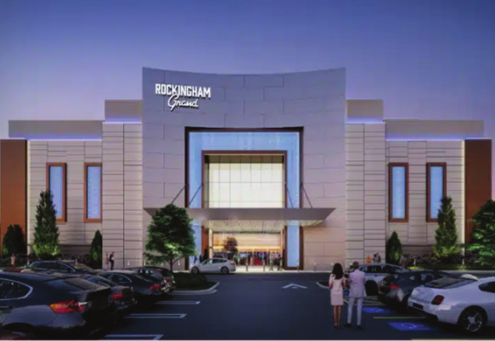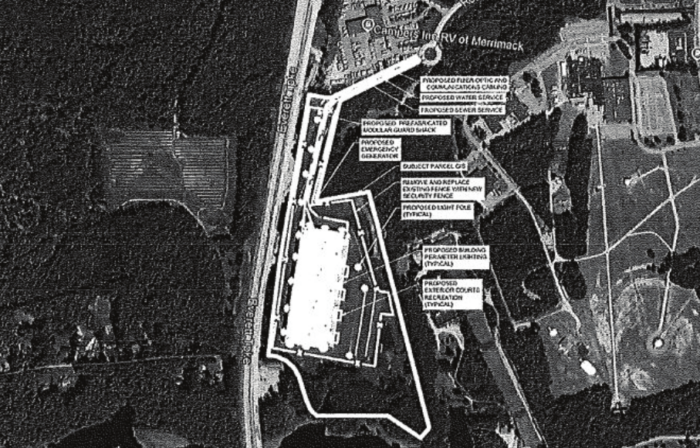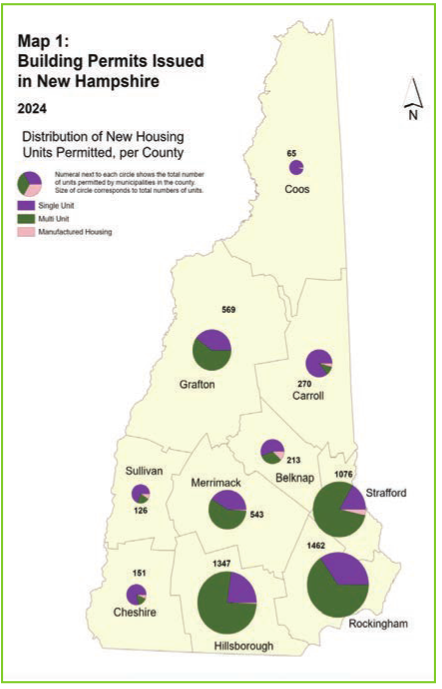
The owner of the former Otter Brook Center on Route 9 in Keene has proposed renovating the property to include an agricultural retail center and three-family home. (Photo by Christopher Cartwright, Keene Sentinel)
The Keene zoning board approved several variances Monday (May 6) night that would allow the owner of the former Otter Brook Center to create an agricultural store and a three-family home.
However, the the board unanimously denied one variance, and the owner withdrew another request to permit accessory structures within the setback.
Owned by Jaffrey-based G2 Holdings, LLC, the property at 21 Route 9 has sat vacant for many years and has fallen into disrepair, according to the proposal that attorney Ariane Ice submitted on the company’s behalf.
The renovation to the 24.78-acre site would turn the main lodge building into an agricultural store, the proposal attached to Monday’s zoning board meeting agenda packet states. Additionally, the owner asked to renovate a former residential structure to be used as a three-family house, install a truck scale and scale house and provide storage space for Habitat for Humanity, Ice wrote.
She added that the agricultural store would sell hardscape materials — such as brick, gravel or stone — and agricultural tools and supplies, while the truck scale and scale house would weigh products from an adjacent gravel pit G2 Holdings owns and also be used to weigh sand and gravel for the store’s customers.
The rural district variances asked for multiple principal uses, which would allow for the store and the house; accessory units within the 50-foot setback; a rear setback of 19.1 feet where 50 feet is required; a multi-family dwelling and to expand the scope of current permitted commercial uses.
Owner Cody Gordon told The Sentinel Monday afternoon that the gravel operation currently sells materials at the pit behind the property, but the store would make it easier and help the business get more notice.
“We’re looking to basically make the place look nice and presentable and … we’d like to put in a kind of garden center,” he said, adding that the store would sell both hardscape and garden products. “… We’d like to help the city and hopefully they’re willing to, you know, work with us and allow us to kind of clean the place up to make it, you know, nice again.”
He also said the business currently hosts occasional pop-up marketplaces run by Monadnock Habitat for Humanity.
At Monday’s hearing, the board approved the three-family home and rear setback variances unanimously, the agricultural store and multiple principal uses 3-1, but unanimously denied the scale and scale house request. Gordon withdrew the request for allowing accessory structures within the 50-foot setback, which were intended to house materials for the Monadnock Habitat for Humanity sales, according to the agenda packet.
In one of the variance requests, Ice argued that the store’s proximity to the gravel pit would be an advantage.
“This facilitates the delivery of gravel pit products to a location accessible to retail buyers — a fact that distinguishes it from commercially zoned properties that are far from the gravel pit,” she wrote.
The property was originally developed as the Palmer Lodge in the 1940s, Ice added.
“[It] was used more recently as a drug rehabilitation and juvenile detention center. Most of the buildings on the site have been vacant for nearly twenty years and have fallen into disrepair,” she stated. “Notably, these prior uses all had a mixed use in that they had commercial and residential components.”
According to previous reporting by The Sentinel, the lodge closed in 1973. Gordon said he bought the property about two years ago.
The site sits across from Granite Gorge Mountain Park, and Ice argued that the renovations would improve property values, as the current property is an “eyesore.”
“Renovating and removing these structures would cause the values of the surrounding property to increase, rather than decrease. All residential and recreational uses in the general area are sufficiently distant from the subject property,” she wrote.
This article is being shared by partners in The Granite State News Collaborative. For more information, visit collaborativenh.org.











